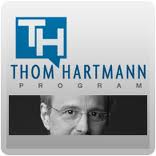 As Americans, we love to think we’re number one, but the truth is that when it comes to internet speed we’re pretty mediocre. In fact, one recent study put the U.S. at number 31 in the world in overall download speed, lagging behind much smaller and less developed countries like Estonia, Hungary, and Slovakia. Internet speeds in the U.S. average out around 20.77 megabits per second, which is less than half of the average internet speed in Hong Kong, which has the world’s fastest internet. For a country like ours, the country that invented the internet and is home to some of the world’s most powerful tech companies, this is just embarrassing.
As Americans, we love to think we’re number one, but the truth is that when it comes to internet speed we’re pretty mediocre. In fact, one recent study put the U.S. at number 31 in the world in overall download speed, lagging behind much smaller and less developed countries like Estonia, Hungary, and Slovakia. Internet speeds in the U.S. average out around 20.77 megabits per second, which is less than half of the average internet speed in Hong Kong, which has the world’s fastest internet. For a country like ours, the country that invented the internet and is home to some of the world’s most powerful tech companies, this is just embarrassing.
But now residents of the small town of Rockport, Maine will get to experience the kind of super high-speed internet that the rest of the world has access to on a daily basis. That’s because on Monday, Rockport officially launched its very own municipally-owned fiber-optic internet network. The culmination of a partnership between the town and state governments, a local telecom company called GWI, and a nearby college, Rockport’s network is the first of its kind in the Pine Tree State. It’s also a great deal for customers. As the Portland Press Herald reports, “At about $69 a month for 100 megabits per second of upload and download speed, Rockport’s service outpaces Time Warner Cable, whose fastest advertised service is 50 megabits per second for downloads and 5 megabits per second for uploads.”
As of now, Rockport’s fiber-optic network is only available to around 70 businesses and households. However, its supporters, like Maine Senator Angus King, expect it to grow rapidly over the next few years and believe it will be a positive example in a state that ranks literally next to last in overall internet access. In today’s economy, internet access shouldn't be considered a luxury, it should be a right, which is exactly why other cities like Chattanooga, Tennessee and Lafayette, Louisiana have done the same thing as Rockport, Maine and set up their own city-run fiber-optic networks.
Comcast and Verizon don’t want you to know this, but the major reason internet access and internet speed is so bad here in the U.S. compared to the rest of the developed world is that the private companies that dominate our telecom industry have so little competition that they simply don't care about making things better for their customers. Investing in ultra-fast fiber-optic internet like the kind now available in Rockport is really, really expensive, and the way big internet giant giants see it, it’s far easier (and more profitable) to just keep prices high and speeds low. The fact that our four biggest internet service providers are virtual monopolies virtually guarantees this will stay this way, too, because without any meaningful competition they have zero incentive to change their ways.
That’s why what’s going on in places like Rockport and Chattanooga is so important. Not only does municipal internet give everyday people access to lightning fast internet at a reasonable cost, it also cuts away at the power of the big telecom monopolies.
There’s a bigger picture here, though, and that’s the fact that internet has become an essential part of our information commons, like public libraries and public schools. And just like water or electricity, because most people only have one or two ways to get the internet at a reasonable speed, it’s a natural monopoly that should be in the hands of “We the People,” not just the private for-profit corporations.
Every American town should do what Rockport, Maine and Chattanooga, Tennessee have done and build a publically-owned fiber-optic network. If they can’t afford to do that, the state or federal government should step in and help them finish the job, just like we did with electric power in the 1930s with the REA and with telephone service to rural areas in the 1940s and 1950s.
The internet is as important to our development today as electricity and phone service were to Americans living in the early 20th century. The stakes are simply too high to let giant virtual monopolies steal our information commons - that was created by our government in the first place - just so they can make a few bucks. Let's hope that Rockport, Maine’s new fiber-optic network will be the spark that sets off a municipal internet revolution.
Should the Internet Be Like The Public Library?
By Thom Hartmann A...



